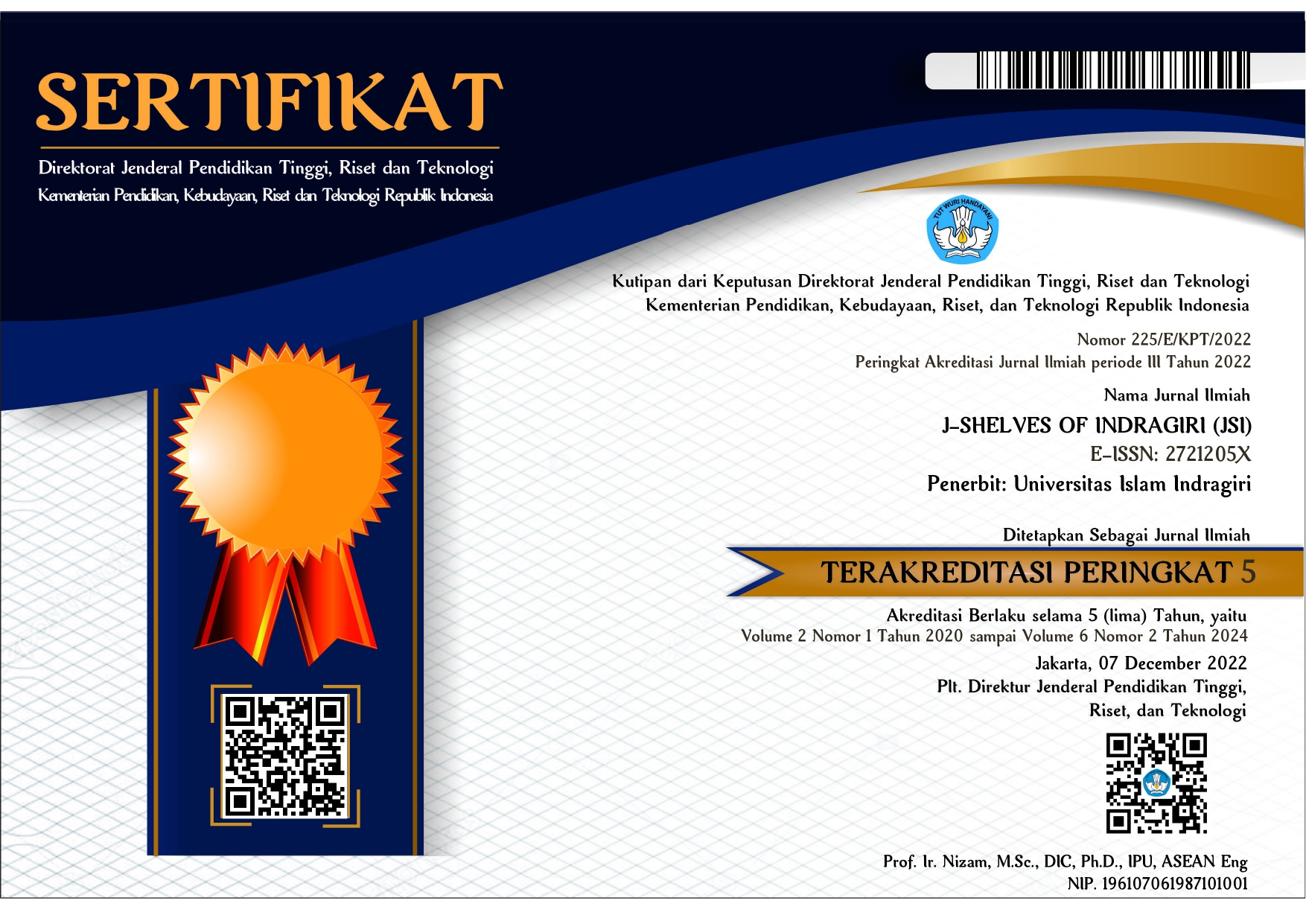EFL STUDENTS' PERCEPTIONS OF USING ENGLISH SONGS FOR STUDENTS' VOCABULARY LEARNING AT DEHASEN UNIVERSITY BENGKULU
DOI:
https://doi.org/10.61672/jsi.v7i2.3354Keywords:
Vocabulary Learning, English Songs, EFL Students, Learner Perceptions, Physical EducationAbstract
Vocabulary knowledge plays a crucial role in English as a Foreign Language (EFL) learning, enabling learners to communicate effectively and comprehend spoken and written texts. In many Indonesian higher education settings, traditional vocabulary teaching methods such as rote memorization and written exercises tend to reduce students’ motivation and hinder long-term retention. This study explored the perceptions of Physical Education students at Dehasen University regarding the use of English songs for vocabulary learning, with attention to enjoyment, perceived effectiveness, and challenges. A qualitative design was employed, involving 50 participants. Data were collected through questionnaires and semi-structured interviews and analyzed using thematic analysis. The findings showed that 90% of students (45 out of 50) reported high enjoyment, and the same proportion perceived English songs as effective for vocabulary acquisition, mainly due to their motivational value and repeated exposure to meaningful language input. Challenges were also noted: 30% (15 students) struggled with unfamiliar slang, 26% (13 students) found it difficult to maintain focus, 24% (12 students) reported pronunciation issues, and 20% (10 students) were affected by fast tempo. Overall, the results suggest that English songs can serve as an engaging and effective medium for vocabulary development when appropriate materials are selected to minimize comprehension barriers. Integrating songs into EFL instruction may enhance vocabulary retention and listening skills while fostering a positive learning atmosphere. Future research could complement perception-based findings with quantitative measures of vocabulary gains to strengthen the evidence for music-based language learning.
Downloads
Published
Issue
Section
License
Copyright (c) 2025 Mariska Febrianti, Aziiz Rahman Putra, Ami Pradana

This work is licensed under a Creative Commons Attribution 4.0 International License.










